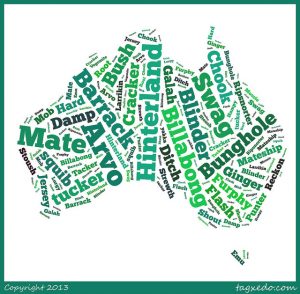Posts by Jo Eberhardt
The first time I saw the movie Clue, I was ten years old. I remember flicking through the channels on the TV and catching the beginning credits of a movie with dark overtones and watching to see what it was all about. I thought it was going to be scary. But it was one of the funniest movies I’d ever seen. (Admittedly the bar was quite low when I was ten.)
Many years later, after the movie had gone from a box-office flop to a cult favourite, I sought it out to see if it was still as good as I remembered. (Spoiler: It was.) Not only is Clue still hilariously camp and funny, it’s also, without doubt, the best movie adaptation of a board game ever. (Again, admittedly a low bar.) Plus, it has another unique feature.
It has three endings.
When the movie was released in 1985, it was shipped off to theatres with each one getting only one of the endings. So a person going to Cinema A may find out that the culprit was one person, while somebody at Cinema B would emerge knowing that the murderer was somebody completely different.
This did not go down well with audiences. Or critics. The movie was criticized for relying on “gimmicks” that only served to distract people from the rest of the story.
When the movie was released on VHS and on TV, all three endings were included. This is the cut that I’d wager most of us have seen. It would have been quite a different experience, I imagine, watching only one of those iconic endings and then wondering whether you should pay to go to a different screening to possibly see another version.
As far as I’ve been able to work out, Clue is the only movie to have ever attempted multiple endings. I don’t mean post-credit scenes, or alternate endings created because the first one bombed with test audiences. I mean real, genuine, different-viewers-have-different-experiences multiple endings.
If things had been different and Clue had been a runaway success, I can only imagine that we would have had 3 versions of Avengers: Endgame released (can’t you just hear the dollar signs?) and at least five different winners of the Iron Throne.
But maybe that’s what the future holds…
Read MoreI’m a big fan of modern computer games. Or, rather, I’m a big fan of modern games with well-written and developed narratives and story arcs. Okay, being completely honest, although I am a fan of narrative arcs in computer games, it’s kind of in the same way that Hansel is a fan of Sting.
Nonetheless, I read a lot of articles and watch a lot of YouTube videos about narrative structure in games. And a few weeks ago I was watching an entertaining deep-dive into the problems with ‘Fallout 3’ when I was blindsided by a piece of story-writing wisdom that came out of nowhere.
To be clear, this information isn’t new. It wasn’t new to me, and I can pretty much guarantee that it won’t be new to you. But sometimes hearing the same advice — the same wisdom– from a different perspective can hit you in just the right way, at just the right time. So today I’d like to share that little bit of wisdom with you.
Read MorePlot is no more than footprints left in the snow after your characters have run by on their way to incredible destinations.
— Ray Bradbury
You take people, you put them on a journey, you give them peril, you find out who they really are.
— Joss Whedon
I have a confession to make. I’ve been a geek for much, much longer than it’s been cool.
In fact, I’m a roleplaying game geek from way back.
I cut my storytelling teeth playing MERP, AD&D, Cyberpunk, Amber, World of Darkness, and many, many more games that will likely mean very little to anyone who isn’t also a roleplayer. And the lessons that I learned running and playing those games taught me more about how to tell a story than practically any other experience in my life.
So today I’d like to share with you how some of my roleplaying experiences relate to the interaction between character and plot.
Read MoreAn interesting thing about posting on the first Saturday of each month is that, every year, I get to write an article during the first week of the new year. For the last few years, I’ve written about setting specific, measurable, achievable, realistic, time-based goals. And, being honest, that’s what I was originally going to write about this year.
But, here’s the thing: I haven’t achieved anything I set out to do last year.
See, the last couple of years have thrown one spanner after another at me. At this point, I have enough spanners to start my own spanner store. But what I don’t have is a lot of writing to show for it.
Well, unless writing about spanners counts.
So this year I want to write about something different. I want to write about looking objectively at the reality of our lives and the world we live in, and planning our goals from there.
The World Kinda Sucks
There’s a part of my brain that tells me that the world doesn’t suck right now any more than it’s always sucked. The issues and problems facing the world-as-a-whole right now aren’t new. There have always been dangerous politicians and discrimination and looming environmental disasters. None of this is new.
But the other part of my brain is jumping around like a frog on meth, shouting that things have never been this bad.
Maybe it’s the 24-hour news cycle, or the way social media makes everything feel more personal, or the fact that I’m a parent now, and more worried about the future than I’ve been before. Maybe it’s just that it feels impossible to escape the over-arching feeling that the world isn’t going to hell in the proverbial handbasket, because it’s already arrived and we’re too busy trying to make the handbasket climb back up the hill to pay attention to anything else.
Whatever it is, it’s almost impossible (for me, at least) to concentrate on crafting authentic, believable, fictional worlds when the real world jumped the shark a couple of seasons ago.
Look out! The Spanners are Coming!
But it’s not just the about the state of the world. It’s also about my life. A couple of years ago, I had a solid writing plan. My kids were both in school, and I was going to go back to university part-time and spend the rest of my suddenly child-free hours writing.
Read MoreA few months ago I wrote about how Authors are Magic. During that post, I talked about reading Cressida Cowell’s How To Train Your Dragon series to my children. We were reading the ninth book in the series at the time, and I described my love for the books like so:
The story is engaging, the characters are fun and inventive, and as the series goes on, it’s clear that the stories – for all that they’re about fantasy Vikings having adventures with their dragons – are really about the process of growing up and find your place in the world. Or, to quote the oft-repeated tagline in the books: They’re about becoming a hero the hard way.
We’ve now finished reading all twelve books in the series, and they’ve prompted me to write about yet another aspect of writing that is near and dear to my heart.
(On a sidenote, I can’t recommend this series enough. The world-building, the characterisation, and the skillful way Cowell continues to “make it worse” are things all writers could learn from.)
Halfway through the eleventh book in the series — right at the Black Moment of the narrative — everything goes wrong. And I mean everything. A secondary character who had been with us from the first page of the first book dies in the most heroic and bittersweet way possible. And, in the end, it doesn’t even (seem to) help.Our hero loses everything he’s gained over the course of ten and a half books, and we’re left wondering: How can he possibly succeed from here?
That in itself isn’t rare or unusual. No, what made it really striking for me was that I was reading this book out loud to my sons. Just like I had all the others. But the emotional core was so very strong that I was struggling to read through my tears.
And it wasn’t just me.
Both my eleven-year-old and seven-year-old cried. My younger son crawled over to curl up in my lap so he could hold on to me and sob his heart out.
Did they want me to stop?
Hell. No.
The very idea that I might stop reading to let us all take a few breaths and recover was met with a chorus of heartbroken pleas not to do such a thing. They were absolutely, completely engaged with the characters and the story. They both, in that moment, knew that their tears were as much a part of the book as the words I was reading.
And that — that, my friends — is what it means to build an authentic emotional core within a story.
Read MoreWe’re three days into November. Or, as many of think about it, three days into National Novel Writing Month (NaNoWriMo).
Cathy wrote a great post yesterday about trusting your gut during NaNoWriMo. Today I thought I’d write a post about the reasons you shouldn’t do NaNoWriMo at all.
Now, to be clear, I secretly love NaNo. I’ve done it sporadically over the last couple of decades, and I absolutely love the concept of it. I just think that if you’re doing NaNoWriMo for the wrong reasons, it may do more harm than good. So let’s get into it. Here are the top five reasons you absolutely shouldn’t do NaNoWriMo.
(Note: The first year I participated, I started on the 8th of November, so if you haven’t started yet and you think you’d enjoy the experience, it’s definitely not too late!)
1. Because it will be easier to write my novel when I’m part of a group.
Read MoreOver the last eight or nine months, I’ve spent a lot of time teaching creative writing to children. When I started, I found it a little frustrating that no matter what the prompt or lesson or skill development, almost every child in every class would start off with a Great New Idea, which promptly turned into fan fiction the moment their pen hit the paper.
What started as “a race car driver has to win his final race to save the world from aliens” quickly became Top Gear fan fiction.
What started as “a girl has to find magical mushrooms to defeat an evil monster” was suddenly set at Hogwarts.
I spent far too much of my time trying to figure out how to overcome this “problem”. And then it occurred to me that maybe it wasn’t actually a problem at all.
In fact, writing fan fiction was incredibly beneficial to these kids. And the more I thought about it, the more I came to realise that writing fan fiction can be beneficial for anyone — whether you’re a brand new writer or a highly experienced one.
Read MoreAs many people know, I’m a big fan of Cressida Cowell’s How to Train Your Dragon series of books. (If you haven’t read them, it’s worth pointing out that they’re very, very different to the movies.) I started reading them to my sons many years ago now, but I’m pretty sure I’m the biggest fan in the household.
The story is engaging, the characters are fun and inventive, and as the series goes on, it’s clear that the stories – for all that they’re about fantasy Vikings having adventures with their dragons – are really about the process of growing up and find your place in the world. Or, to quote the oft-repeated tagline in the books: They’re about becoming a hero the hard way.
I got a real sense of the magic of these books – and books in general – when I was reading the ninth book in the series (How to Steal a Dragon’s Sword) to my children a few nights ago.
Halfway through the book, the protagonist – Hiccup – puts a piece of paper hurriedly into his pocket instead of putting it away properly inside the secret compartment in the hilt of his sword. It doesn’t seem like a big deal at the time. It’s just something that happens in a single sentence during the transition between two scenes.
The moment is gone and forgotten within half a page, and never mentioned again. But at the end of the book, when it seems that all hope is lost, another character mentions that they could possibly still save the day if only Hiccup hadn’t lost his sword and the note that was hidden inside it.
In the book, Hiccup gingerly reaches into his pocket and extracts the very thing they need to triumph.
But in real life, before I’d read Hiccup’s reaction, my son sat bolt upright in bed, his eyes wide. “Hiccup has it in his pocket!” he whisper-exclaimed. He licked his lips, his eyes shining with joy and wonder. “You see?” he said, his voice hushed and reverent. “That’s the magic of authors! Cressida Cowell set this whole thing up so Hiccup would have the paper when he needed it. It’s genius. Authors are like magic!”
Now, I’m going to go out on a limb and say that the majority of eleven-year-olds probably don’t react to plot twists by praising the genius of the author – a side-effect of having a parent who’s a writer, perhaps? – but that doesn’t make his words any less true.
Authors are like magic.
Read MoreGeorge Bernard Shaw once wrote:
England and America are two countries separated by the same language.
But it’s not only England and America – there are numerous English-speaking countries separated by the same language. In fact, there are different parts of English-speaking countries likewise afflicted.
In general, I find the differences in the use of language fascinating. I’m sure by now the internet has taught everyone that the idea of ironing one’s pants has different meanings in the UK and the US. The differences in the way we use everyday words is one of the more interesting aspects of talking with people from around the world.
When it comes to writing fiction, however, these differences take on a much greater importance than mild amusement over using the phrase “fanny pack” in the wrong setting.
Know Your Character
As an Australian, it’s incredibly frustrating to read a book where an Australian character is reduced to a caricature of himself by the over-use, and incorrect use, of slang. I’ve come across Australian characters who seem to have eaten a Dictionary of Australian Slang for breakfast, and then vomited it all over the page.
Read MoreWriters write.
It’s such a staple of writing advice that it’s almost impossible to pinpoint where the quote comes from. When you start looking into writing quotes and statements, every successful author seems to have written some variation on the theme. Writers write. They don’t talk about writing, or think about writing, or wish they’d written — they write.
It’s simple, straightforward, and unarguable.
Someone who thinks about writing, or talks about writing, or wishes they were writing isn’t, well, writing. So they’re not a writer.
But…
The trouble with general advice is that there’s no nuance; no context. What does “writers write” actually mean, in the bigger picture of life?
Read MoreToday, I’m thinking about the internet.
I’ve been without access to the internet for a couple of days. At the time of writing this post, I’m not even sure I’ll be able to upload it, or contact anyone to let them know if I can’t.
My original article has been put on hold (because I can’t get access to the internet to do the research it requires), and instead I’m thinking about the internet.
As many of you know, I live in rural Australia, where the intense heat and humidity seem to make the wi-fi melt out of the air, leaving me unable to connect to anyone or anything outside my own house. (Yes, I know that’s not how the internet works… But I don’t have a better explanation for why I lose internet on hot, humid days.) So, while I hear/read lots of writers talking about ways to get off the internet to enable them to concentrate on writing, I often find myself with the opposite problem in the summer months.
I’m old enough to remember a time before the internet was really a thing. To remember the early days of ICQ chats and message boards and image-free webpages that took upwards of a minute to load. But I’m also young enough that I reach instinctively for my phone when I find myself wondering who that actor is, or where I’ve heard a phrase before, or who sings that song that’s stuck on infinite repeat in the back of my mind.
Without the internet, I feel somewhat lost. Not just in life (although, that too) but in writing.
I’m not just thinking about the internet. I’m thinking about the often surprising ways I use it to improve my writing.
Read More





















